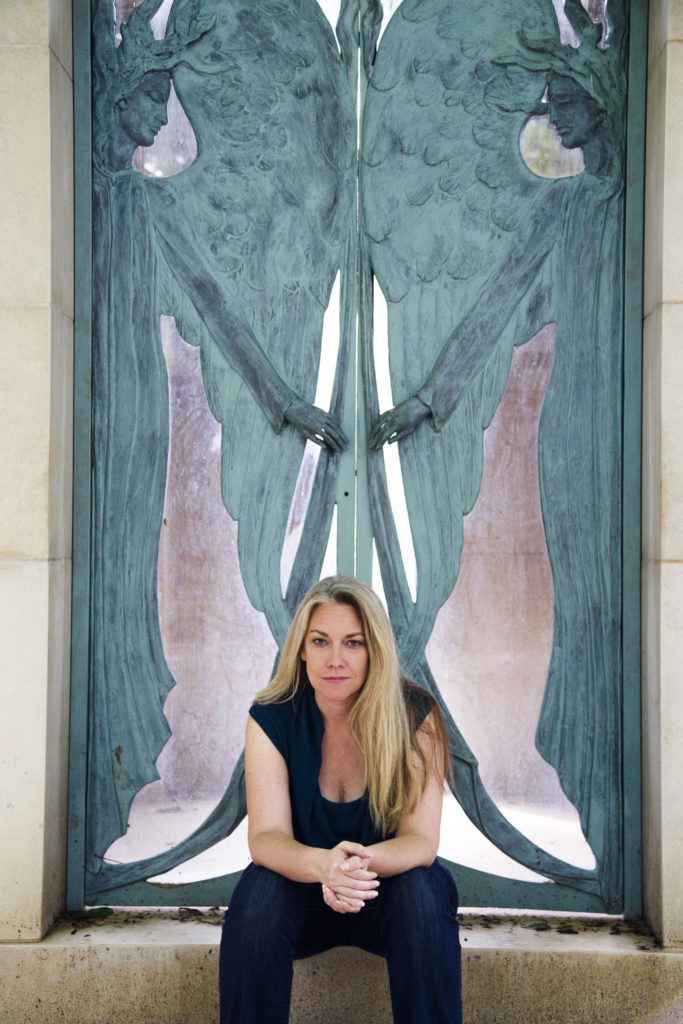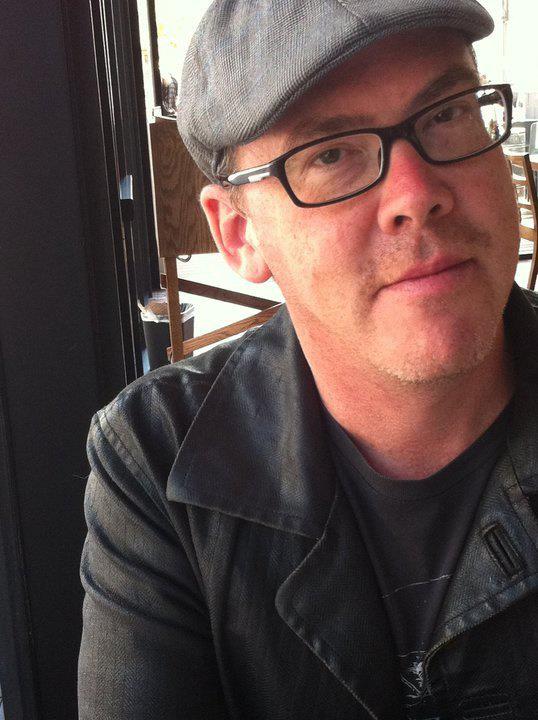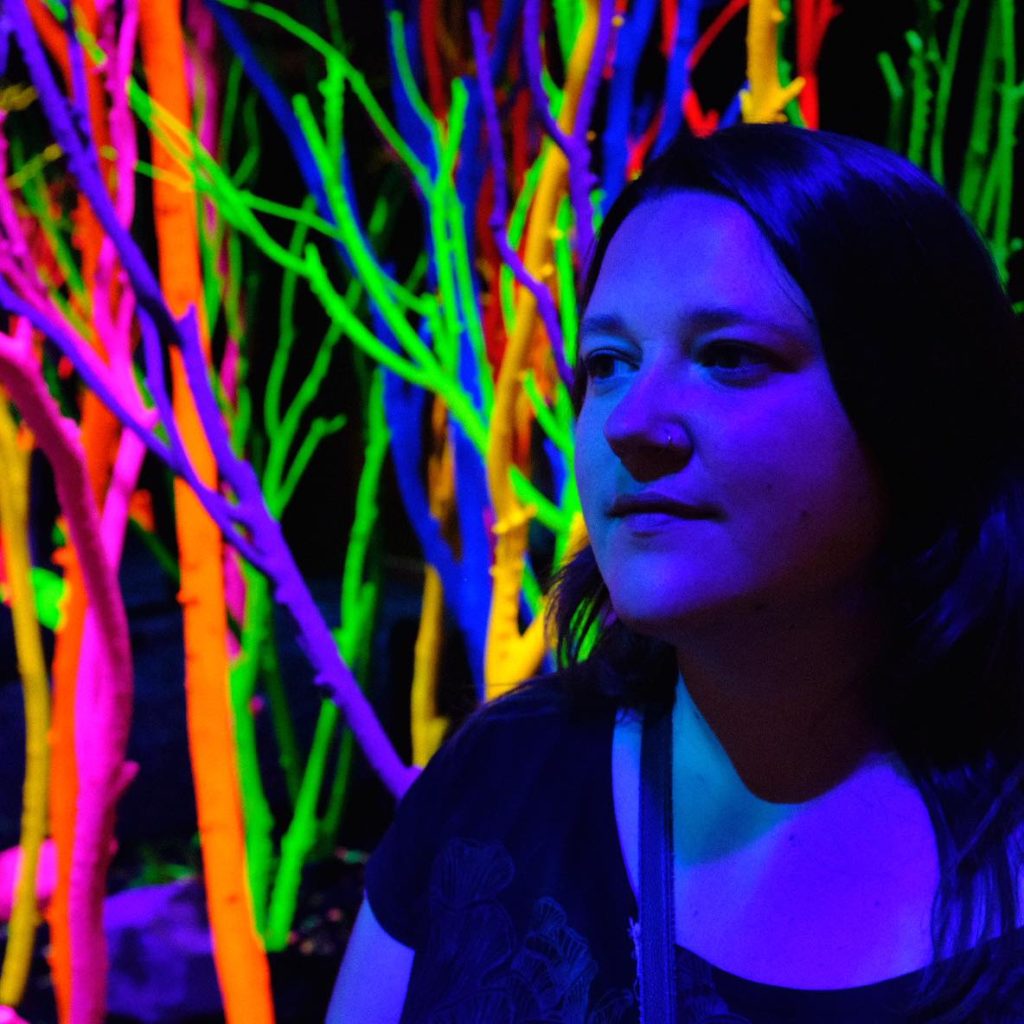
Angela Watrous (director/producer) is the published author of five books and many dozens of articles, interviews, and reviews, and she was a developmental book editor for two decades. Angela has an MFA in creative writing from the University of Michigan, bringing to this project a strongly honed sense of narrative and story. She has spent the past decade professionally guiding people through processes that promote ancestral healing as one pathway to personal healing, collective wellness, and social justice. In the Wake of Our Ancestors is Angela’s filmmaking debut. She was born and still lives on unceded Chochenyo Ohlone land (San Francisco East Bay Area, CA), and she’s a direct descendent of early English settler-colonizers.
Gregg Marks (editor/sound mixing)is an award-winning documentary filmmaker, cinematographer, and editor, committed to telling stories of transformation, healing, and social justice since 2006. Gregg made his directorial debut with the feature documentary May I Be Frank (2010). He was the director of photography and editor on Love Bomb: A Journey from Fear to Love and A Path to Abiding Joy. He also edited Heavily Meditated, about incarcerated youth learning meditation from former felons. Gregg has thirty-five years of experience as a sound engineer and musician, and over the last decade he’s edited and sound mixed/mastered dozens of shorts and feature films. He lives on unceded Ramaytush Ohlone land (San Francisco, CA), and his ancestors were early English settler-colonizers.


Drew Boggemes (Director of Photography) is a filmmaker and professional videographer. His directorial debut, the fictional short Dirt, follows a seemingly run-of-the-mill school bully as he mechanically occupies the roles expected of his social archetype on what is to become the last day of his life. He worked as an onset production assistant for two seasons on the Adult Swim series Joe Pera Talks with You. He lives on the ancestral land of the Sauk people (Midland, Michigan) and some of his ancestors were early settler-colonizers.
Kayla Bell (Cinematographer) was a Sundance Full Circle Fellow, a yearlong intensive that supports talented Native storytellers in becoming independent filmmakers. Her love of storytelling and visual art informs her eclectic approach to filmmaking. She has a B.A. in English from Northern Michigan University, where she worked at the Center for Native American Studies, and she was an intern at the Smithsonian National Museum of the American Indian in Washington D.C. She is a member of the Sault Ste. Marie Tribe of Chippewa Indians, and she lives on traditional Sauk lands (Midland, Michigan), in the ancestral home of her grandparents.

Veronica E. Velarde Tiller (Advisor), a member of the Jicarilla Apache Nation, is a historian, author, and Native language and film consultant. She has a Ph.D. from the University of New Mexico (1976). She is best known for two of her publications: The Jicarilla Apache Tribe: A History 1846-1970 (1983) and the award-winning Tiller’s Guide to Indian Country: Economic Profiles of American Indian Reservations (1995, 2005, 2015). Throughout her publications and her life’s work, Veronica has promoted history from the Native perspective, reaching national and international audiences. Hers was a featured voice in the film, A Thousand Voices (2015) on Native women in New Mexico, which won the 2015 Best Documentary Feature from the American Indian Film Festival. She also served as an advisor for the film Defending the Fire (2019) about the spiritual and historic journey of Native warriors. In 2022, Veronica received a writing grant from the New Mexico Writers Organization of Santa Fe to reexamine her tribe’s history in the 1870s––1880s, covering the removal of her tribe from their ancestral lands along the Santa Fe Trail.
Nicole Lim (Advisor), Executive Director of the California Indian Museum and Cultural Center (CIMCC),has earned advanced degrees from the University of California at Berkeley and University of San Francisco School of Law. She is Pomo and has worked for the CIMCC and the National Indian Justice Center since 1996. As Executive Director of the CIMCC, she develops exhibits, educational programs, and curricular resources that represent Native American perspectives. She founded the Tribal Youth Ambassadors program in 2010, which received the National Arts and Humanities Youth Program Award from the President’s Committee on Arts and Humanities in 2016. She coedited On Indian Ground: California, the first in a series of books that focus on best practices for K-12 educators of Native students. She is currently Secretary of the National Tribal GIS program and a member of the Native American Advisory Committee to the University of California Office of the President. She also serves on T-Mobile’s External Diversity and Inclusion Sub Council for California and is the Chairperson of the American Indian Education Oversight Committee to the California State Superintendent of Public Instruction.